2019 Experts
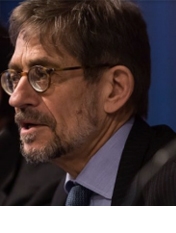
Keynote Speaker: Thomas Graham
Thomas Graham is a managing director at Kissinger Associates, Inc., where he focuses on Russian and Eurasian affairs. He was Special Assistant to the President and Senior Director for Russia on the National Security Council staff from 2004 to 2007 and Director for Russian Affairs on that staff from 2002 to 2004. From 2001 to 2002, he served as the Associate Director of the Policy Planning Staff of the Department of State. From 1998 to 2001, Mr. Graham was a senior associate in the Russia/Eurasia program at the Carnegie Endowment for International Peace. From 1984 to 1998, he was a Foreign Service Officer. His assignments included two tours of duty at the U.S. Embassy in Moscow, where he served as head of the political/internal unit and acting political counselor. Between tours in Moscow, he worked on Russian and Soviet affairs on the Policy Planning Staff of the Department of State and as a policy assistant in the Office of the Undersecretary of Defense for Policy. Graham is one of the founders and co-Directors of the Russian Studies Project at Yale.
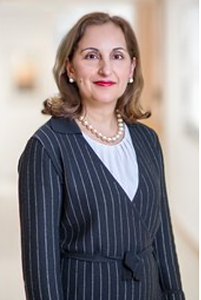
Deana Arsenian
Deana Arsenian, as vice president of the International Program, promotes the development of Carnegie Corporation’s grantmaking on international issues. She is also responsible for the Corporation’s work concerning Russia and Eurasia.
From 1983 to 1990, Ms. Arsenian worked as a program officer in the Corporation’s Avoiding Nuclear War Program. In 1990, she left the Corporation to become the assistant director of the Center for Foreign Policy Development at Brown University, which later merged with the Watson Institute for International Studies. In 1997, Ms. Arsenian returned to the Corporation from the Watson Institute, where she was assistant director for development and special projects.
Ms. Arsenian earned a BA in political science from Barnard College and an MA in international affairs from Columbia University’s School of International and Public Affairs. She is a former member of the board of directors of the Armenian Assembly and a member of the Council on Foreign Relations.
She and her husband, Mark Malkasian, are parents of a daughter, Anais.
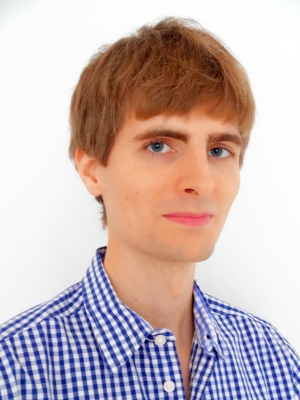
Arvid Bell
Arvid Bell is a scholar and entrepreneur who specializes in negotiation analysis, complex conflicts, and international security. He is a Fellow at the Davis Center for Russian and Eurasian Studies at Harvard University where he leads the Negotiation Task Force, an Associate Fellow at Peace Research Institute Frankfurt (PRIF), an expert with the Conflict Analytics Lab at Queen’s University, and Partner at Negotiation Design & Strategy (NDS), a U.S.-based training, advisory, and research development group.

John R. Beyrle
John Beyrle was elected Chairman of the U.S. Russia Foundation in October 2018. Prior to this role, he served as an American diplomat for three decades in a career focused on the Soviet Union and Russia, and Central and Eastern Europe. He was twice appointed ambassador: to Bulgaria (2005-08), and to Russia (2008-12). During the latter assignment, Beyrle helped foster improved U.S.-Russian relations, highlighted by the signing of the New START nuclear arms reduction treaty.
Ambassador Beyrle’s diplomatic service included two earlier tours at the U.S. Embassy in Moscow, including as Deputy Chief of Mission. He served as counselor for political and economic affairs at the U.S. Embassy in the Czech Republic, and a member of the U.S. delegation to the CFE arms control negotiations in Vienna. His Washington assignments included special adviser to Secretary of State Colin Powell for the New Independent States, and director responsible for Russian policy on the staff of the National Security Council under President Clinton.
Ambassador Beyrle received the Presidential Distinguished Service Award from President Obama, and the Presidential Meritorious Service Award during the administration of George W. Bush. Secretary of State Hillary Clinton personally presented him with the Distinguished Service Award, the State Department’s highest honor. He retired from the Foreign Service in 2012 as a Career Minister, a diplomatic rank equivalent to a three-star general.
Ambassador Beyrle received a B.A. with honors from Grand Valley State University (1975) and an M.S. as a Distinguished Graduate of the National War College (1996), where he later taught as a visiting professor of national security studies. He speaks Bulgarian, Czech, French, German and Russian.
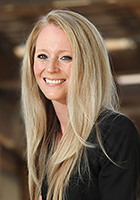
Sarah Bidgood
Sarah Bidgood is a Senior Research Associate and Project Manager at the James Martin Center for Nonproliferation Studies (CNS), based in Monterey, CA. Her areas of research include US-Soviet and US-Russia nonproliferation cooperation, as well as nonproliferation and disarmament diplomacy. Previously, Sarah was a graduate research assistant at CNS and the project manager for the Monterey Initiative in Russian Studies. Sarah is a member of the CTBTO Youth Group, and she served as an intern at the UN Office for Disarmament Affairs during the 2015 NPT Review Conference. Before coming to Monterey, she worked in the field of scientific publishing as a managing editor and peer review manager. Sarah is the coeditor of Once and Future Partners: the US, Russia, and Nuclear Nonproliferation (with Dr. William Potter; Routledge, published 2018). Sarah earned her BA in Russian from Wellesley College. She also holds an MA in Russian, East European, and Eurasian Studies from the University of North Carolina at Chapel Hill and an MA in Nonproliferation and Terrorism Studies from the Middlebury Institute of International Studies.
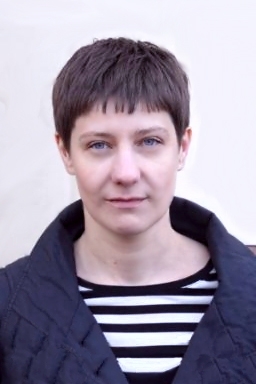
Irina Borogan
Irina Borogan is an investigative journalist and a deputy editor of Agentura.Ru, a watchdog of Russia’s secret services’ activities. In 2009 Borogan started a series of articles investigating the Kremlin’s campaign to gain control of civil society and strengthen the government’s police services under pretext of fighting extremism. The series was published in Ezhednevny Journal and on Agentura.Ru. Borogan is a regular commentator on the Radio Free Europe/ Radio Liberty and the BBC Russian service. Borogan also regularly makes comments on terrorism for the Moscow Times and writes for Foreign Policy and Foreign Affairs.
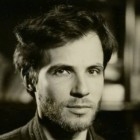
Filipp Dzyadko
Founder & Editor-in-chief of education platform «Arzamas» (arzamas.academy). In 2007 he defended a thesis on the reception of Ancient culture in the Russian literature of the XIX-th century, worked as latin language teacher, editor of «Esquire» magazine, editor-in-chief of «Bolshoi Gorod» magazine, TV-host on «Rain» TV-channel and and a radio host on «Culture» radio channel. In 2015 became a co-founder of education platform «Arzamas» with actress and TV presenter Anastasia Chukhrai. In 2015 launched a platform «Relikva» (relikva.com) dedicated to private memory.
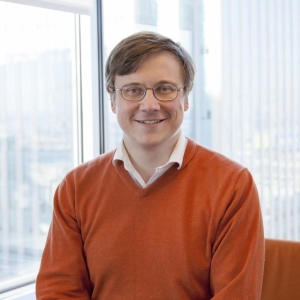
Yury Dvorkin
Dr. Yury Dvorkin is an Assistant Professor in the Department of Electrical and Computer Engineering at New York University’s Tandon School of Engineering. Before joining NYU, he was a Ph.D. student (class of 2016) at the University of Washington, under the supervision of Prof.Daniel S. Kirschen, and a graduate student researcher (2014) at the Center for Nonlinear Studies, Los Alamos National Laboratory. For his dissertation work, entitled “Operations and Planning in Sustainable Power Systems“, Yury was awarded the inaugural 2016 Scientific Achievement Award by Clean Energy Institute (University of Washington). In 2019, Yury received the NSF CAREER Award to investigate small-scale electricity trading. Also, Yury is a dedicated reviewer, who was awarded with the Best Reviewer Award from IEEE Transactions on Power Systems (2014, 2015, 2016, 2017, 2018), IEEE Transactions on Sustainable Energy (2014, 2015,2016), and IEEE Transactions on Smart Grids (2016). Since 2019, Yury has been an Associate Editor of the IEEE Transactions on Smart Grid.
Yury’s research focuses on developing modeling and algorithmic solutions to assist society in accommodating emerging smart grid technologies (e.g., intermittent generation, demand response, storage, smart appliances, cyber infrastructure) using multi-disciplinary methods in engineering, operations research, economics, and policy analysis. His current research is funded by the National Science Foundation, US Department of Energy, New York State Energy Research and Development Authority, and Alfred P. Sloan Foundation.
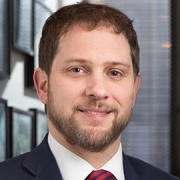
Jon Finer
Jon Finer is adjunct senior fellow for U.S. foreign policy at the Council on Foreign Relations. Previously, he was the chief of staff and director of policy planning at the U.S. Department of State, serving as Secretary John Kerry’s principal advisor and helping lead the Obama administration’s key diplomatic initiatives, including the Iran nuclear negotiations and the Paris climate accord. Finer served in the White House during the first term of the Obama administration, starting as a White House fellow in the Office of the Chief of Staff and also working as Vice President Biden’s Middle East advisor and foreign policy speech writer, as well as on the National Security Council Staff.
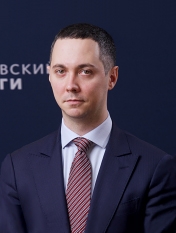
Alexander Gabuev
Alexander Gabuev is a senior fellow and the chair of the Russia in the AsiaPacific Program at the Carnegie Moscow Center. His research is focused on Russia’s policy toward East and Southeast Asia, political and ideological trends in China, and China’s relations with its neighbors—especially those in Central Asia. Prior to joining Carnegie, Gabuev was a member of the editorial board of Kommersant publishing house and served as deputy editor in chief of Kommersant-Vlast, one of Russia’s most influential newsweeklies. Gabuev started his career at Kommersant in 2007 working as a senior diplomatic reporter, as a member of then president Dmitry Medvedev’s press corps, and as deputy foreign editor for Kommersant. His reporting covered Russia’s relations with Asian powers and the connection between Russian business interests and foreign policy. Gabuev has previously worked as a nonresident visiting research fellow at the European Council on Foreign Relations (ECFR) and taught courses on Chinese energy policy and political culture at Moscow State University.
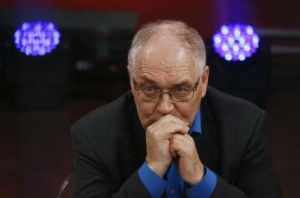
Lev Gudkov
Born in 1946, Moscow, Prof. Dr. Gudkov studied journalism, sociology, and philology at the Moscow State University. He completed his Post-graduate degree at the Institute for Philosophy of the USSR Academy of Sciences in 1977and completed his dissertation, “Candidate of the Philosophical Sciences” in 1979, and became a Doctor of Philosophy in 1995. Prof. Gudkov has worked at various institutions of the USSR Academy of Sciences since 1970. He has been a researcher in The Russian Centre for Public Opinion Research (VCIOM), Head of Department of Social and Political Studies since 1988. Levada Analytical Center (Levada-Center), Head of Department of Social and Political Studies, 2003-2006. Prof. Gudkov has been the Director of Levada Center since 2006. He is also the Editor-in-Chief of the magazine “Russian Public Opinion Herald” and is a lecturer at The Higher School of Economics.
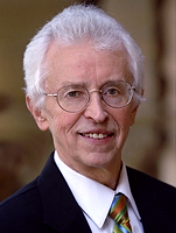
Siegfried Hecker
Siegfried S. Hecker is a professor (research) in the Department of Management Science and Engineering and a senior fellow at the Freeman Spogli Institute for International Studies (FSI) at Stanford University. He was co-director of CISAC from 2007-2012. From 1986 to 1997, Dr. Hecker served as the fifth Director of the Los Alamos National Laboratory. Dr. Hecker is an internationally recognized expert in plutonium science, global threat reduction, and nuclear security. Dr. Hecker joined Los Alamos National Laboratory as graduate research assistant and postdoctoral fellow before returning as technical staff member following a tenure at General Motors Research. He led the laboratory’s Materials Science and Technology Division and Center for Materials Science before serving as laboratory director from 1986 through 1997, and senior fellow until July 2005. Dr. Hecker’s research interests include plutonium science, nuclear weapons policy, nuclear security, and the safe and secure expansion of nuclear energy. Dr. Hecker has visited North Korea frequently in an unofficial capacity to assess the plutonium program at the Yongbyon Nuclear Scientific Research Center. Over the past 20 years, he has fostered cooperation with the Russian nuclear laboratories to secure and safeguard the vast stockpile of ex-Soviet fissile materials. Dr. Hecker’s research projects at CISAC focus on reducing the risks of nuclear terrorism worldwide and the challenges of nuclear India, North Korea, Pakistan, and the nuclear aspirations of Iran. Dr. Hecker has also published a two-volume book on the history of Russian-U.S. laboratory-to-laboratory cooperation since 1992.
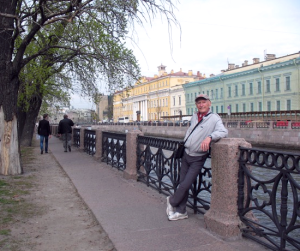
Dennis Kimmage
Dr. Dennis Kimmage is a leading western expert on Soviet and Russian libraries. He received his Ph.D. in Russian Literature from Cornell University in 1974. He is the author of Russian Libraries In Transition: An Anthology Of Glasnost Literature.
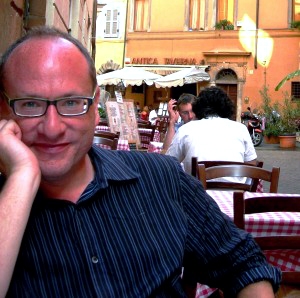
Michael Kimmage
Michael Kimmage is a professor of history at the Catholic University of America. From 2014 to 2017 he served in the Secretary’s Office of Policy Planning where he held the Russia/Ukraine portfolio. His latest book is forthcoming with Basic Books and is titled The Decline of the West; An American Story.
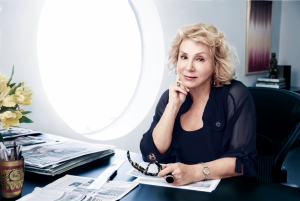
Shelley Komarov
Shelley Komarov is the founder and Creative Director of Komarov Enterprises, Inc. Hailing from St. Petersburg, Russia, Shelley immigrated with her husband, Boris, and small son, Dimitri, to the United States in 1978. Having had experience making costumes for the Kirov Ballet in Russia, she sought a career in costume design for film and television when she landed in Los Angeles in 1980.
During her 25 years as a costume designer, Shelley was honored with three Emmy awards for her work on The Kennedy’s of Massachusetts, Frank Sinatra and Introducing Dorothy Dandridge, as well as an Emmy nomination for A Woman Named Jackie. She was charged with creating costumes for over forty productions ranging from feature films to miniseries.
While still immersed in her work in the movie industry, Shelley found the time and energy to start a successful line of women’s sportswear and dresses, KOMAROV.
Shelley finds time in her busy schedule to make guest appearances and lecture at UCLA, Ottis Parson and Chapman University.
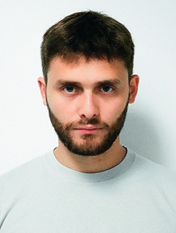
Ilya Krasilshchik
After dropping out of university at 21, in 2008 Ilya became the Editor of the then most influential Moscow entertainment and city life magazine Afisha. During his 5 year tenure Afisha published more the 100 issues including a “Coming Outs” one (as an answer to the ”LGBT propaganda” law adopted by State Duma), as well as a few mammoth specials like “Oral History of Russian Media” and “Oral History of Russian Internet”. He stepped down in 2013 to become the Product Director at Afisha publishing company, launching three separate web-based media and а TV streaming service in one year. In October 2014 he finally left Afisha, and together with two partners launched Meduza, a groundbreaking Russian language web news outlet based in Riga, Latvia. By August 2018 the monthly readership of Meduza exceeded 11 million unique visitors, with 1,000,000 app downloads and more than 1,500,000 followers on social media. 75% of Meduza’s audience is based in Russia. Ilia speaks fluent Russian and English.
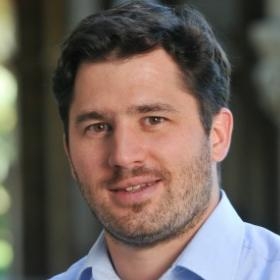
Andreas Kuehn
Andreas Kuehn is a Senior Program Associate at the EastWest Institute in the San Francisco office. As part of EWI’s Global Cooperation in Cyberspace program, Andreas is responsible for the substantive development of EWI’s breakthrough groups on the Internet of Things, and encryption policy. His expertise focuses on emerging information technology issues at the intersection of cybersecurity, digital policy and Internet governance.
Before joining EWI, Andreas conducted research at Stanford University’s Center for International Security and Cooperation as a Zukerman Cybersecurity Predoctoral Fellow, was an adjunct researcher at the RAND Corporation, and worked internationally in various public and private sector positions. A Fulbright Scholar, Andreas received a Ph.D. in Information Science and Technology from Syracuse University, and holds an M.Sc. in Information Systems from the University of Zurich.
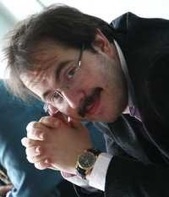
Vasily Kuznetsov
Dr. Vasily Kuznetsov (PhD in history, 2010) is the Head of the Center for Arab and Islamic Studies, Institute of Oriental Studies under the Russian Academy of Sciences; Associate Professor in the Faculty of World Politics, Moscow State University; senior policy adviser of the Russian Contact Group for an Inter-Libyan Settlement under the Russian Foreign Ministry and Parliament. He is author of several analytical reports for the International Discussion Club “Valdai”, for the Russian International Affairs Council (RIAC), author of a monograph on political transformation in post-revolutionary Tunisia written on fieldwork (2011-2017). He is also a regular contributor with Al-Monitor. Vasily A. Kuznetsov is interested in the study of socio-political processes, problems of statehood and religious life in contemporary Arab societies. He is involved in several Track II initiatives related to Russian policy in the Middle East.
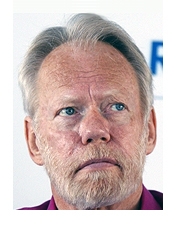
Robert Legvold
Dr. Legvold is Marshall D. Shulman Professor Emeritus in the Department of Political Science at Columbia University, where he specializes in the international relations of the post-Soviet states. He was Director of The Harriman Institute, Columbia University, from 1986 to 1992. Dr. Legvold’s areas of particular interest are the foreign policies of Russia, Ukraine, and the other new states of the former Soviet Union, U.S. relations with the post-Soviet states, and the impact of the post-Soviet region on the international politics of Asia and Europe. Legvold is a former trustee of the Carnegie Endowment for International Peace,and a member of various advisory boards, including those of the Committee on International Security Studies of the American Academy of Arts and Sciences, the Watson Institute for International Studies at Brown University, and the Foundation for International Peace and Democracy, led by Mikhail Gorbachev. He is a fellow of the American Academy of Arts and Sciences and a foreign member of the Russian Academy of Social Sciences.
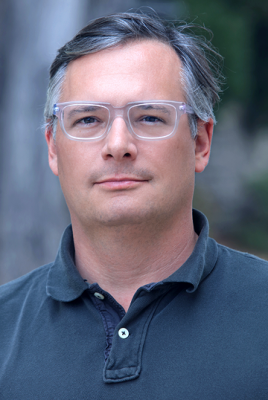
Jeffrey Lewis
Dr. Jeffrey Lewis is the Director of the East Asia Nonproliferation Program at the James Martin Center for Nonproliferation Studies (CNS). Before coming to CNS, Dr. Lewis was the Director of the Nuclear Strategy and Nonproliferation Initiative at the New America Foundation. Prior to that, he was Executive Director of the Managing the Atom Project at the Belfer Center for Science and International Affairs, Executive Director of the Association of Professional Schools of International Affairs, a Visiting Fellow at the Center for Strategic and International Studies and a desk officer in the Office of the Undersecretary of Defense for Policy. He is also a Research Scholar at the Center for International and Security Studies at the University of Maryland’s School of Public Policy (CISSM).
Dr. Lewis received his Ph.D. in Policy Studies (International Security and Economic Policy) from the University of Maryland and his B.A. in Philosophy and Political Science from Augustana College in Rock Island, Ill.
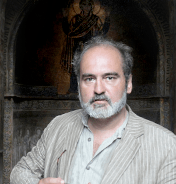
Alexei Lidov
Dr. Lidov is a world known art historian and Byzantinist, a specialist in Byzantine iconography, Christian sacred images and theory of art. Lidov is the founder and director of the Research Centre for Eastern Christian Culture in Moscow (since 1991), the head of the Department at the Institute for World Culture of Lomonosov Moscow State University, and a full member (academician) of the Russian Academy of Arts as well as a member and fellow of St. Catherine’s College at Oxford University. Lidov is the author of more than 100 research publications in many languages, among them 30 monographs, catalogues and collections of articles. He coined the term ‘hierotopy’ and established a new field of studies in the creation of sacred spaces (see ‘Alexei Lidov’ in Wikipedia, and www.hierotopy.ru)
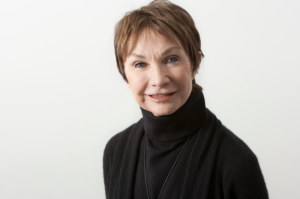
Dulce Murphy
Dulce Murphy is a social enterprise leader and expert in Russian-American relations. Murphy began working at Esalen Institute in 1970 and served on its Board of Directors from 1973 to 1975. She co-founded the Esalen Soviet American Exchange Program in 1980, traveling to and from the Soviet Union each year to establish relationships, undertake collaborations and build a citizen-to citizen network. In the spring of 2004, the program evolved to an independent organization and changed its name to Track Two: An Institute for Citizen Diplomacy, with the mandate to expand to other regions of conflict including the Middle East and the North Pacific Rim. Murphy, frequently cited as an expert in Russian and Middle Eastern diplomacy, has spent over thirty-seven years on the cutting edge of nongovernmental relations and Track Two diplomacy. She is a member of the Advisory Council of the Monterey Initiative in Russian Studies, a program of the Middlebury Institute of International Studies in Monterey, California. She is also a member of the Advisory Board of IFAW Russia and CIS (International Fund for Animal Welfare). Murphy speaks at university conferences on Russia and the Middle East while continuing the day-to-day management of Track Two where she currently serves as President and Chairman of its Board of Directors.
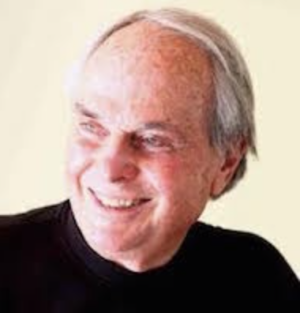
Michael Murphy
Michael Murphy is the co‑founder and Chairman Emeritus of the board of the Esalen Institute and the author of both fiction and non‑fiction books that explore evidence for meta‑normal capacities in human beings, including Golf in the Kingdom and The Future of the Body. During his fifty- year involvement in the Human Potential Movement, he and his work have been profiled in the New Yorker and featured in many magazines and journals worldwide. A graduate of Stanford University, he was one of the first Americans to live at the Sri Aurobindo Ashram in Pondicherry, India in the mid 1950s. In the 1980s, Murphy helped start a successful Soviet‑American Exchange Program, which was a premiere diplomacy vehicle for citizen‑to‑citizen Russian‑American relations. Boris Yeltsin’s first visit to America in 1989 was initiated by Esalen. His other books include The Life We Are Given (co‑authored with George Leonard), The Kingdom of Shivas Irons, Jacob Atabet, An End to Ordinary History, In the Zone: Transcendent Experience in Sports (coauthored with Rhea White), and The Physical and Psychological Effects of Meditation.

Hanna Notte
Hanna Notte is a Political Officer with The Shaikh Group. She supports the organization’s engagement with Russia related to its Syria Track II Dialogue Initiative specifically, and also works on other Track II dialogues related to the MENA region. Hanna recently completed her DPhil on Russian-US cooperation in the Middle East at the University of Oxford (St. Antony’s College), from where she also received an MPhil in International Relations in 2014. She spent a year between 2015-2016 in Moscow on an ‘Alfa Fellowship’ with the Institute of Oriental Studies and the Carnegie Moscow Center. Other visiting research positions have included the IISS’ Middle East office in Manama, Bahrain and the Konrad-Adenauer-Foundation’s Syria/Iraq office in Beirut, Lebanon. Hanna holds a BA in Social and Political Sciences from the University of Cambridge and worked at Goldman Sachs’ London offices as a strategic equity analyst from 2010-2012. Her research interests focus on Russian foreign policy in the Middle East (especially the Levant and Iran) and Russian-U.S. relations. She is a German national who speaks Russian, Arabic and French.
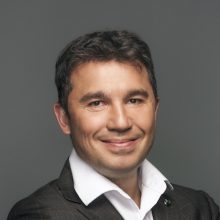
Victor Orlovsky
Victor Orlovsky has more then 20 years of experience in the financial technology space. He started his career in ABN AMRO serving in different managerial positions in Uzbekistan, Russia and Head Quarters in Amsterdam.
In 2001 Victor joined Alfa Bank (www.alfabank.ru – one of the leading Russian financial institutions) as the Chief Transformation Officer and oversaw the largest banking transformation project in Russia of the early 2000s. It resulted in the state-of-the-art business model and technological solution and made Alfa Bank a leader in innovative banking and the most efficient financial company in Russia and CIS for more than a decade.
In 2006 Victor became a partner at IBM Global Business Services. Victor oversaw FI and Insurance practices in Russia and CIS.
From 2008 to 2015 Victor continued his career in Sberbank (www.sberbank.ru). He started as Chief Technology Officer (2008-2013) and executive board member and then continued as Chief Digital Officer (2014-15).
Several times Victor was nominated as the best CTO of the year in Russia, Best CTO of the year in Europe (Oracle award), and was selected among the top 1000 most efficient managers in Russia (www.kommersant.ru). Victor was the member of supervisory boards of more than 10 Sberbank subsidiaries and banks; he was a founder and chairman of the Supervisory Board of Sberbank Technology (largest tech company in Russia) and Sberbank Services.
Since August 2015 Victor is a general partner of the Venture fund FortRoss Ventures (www.fortross.vc), he is an angel investor and entrepreneur.
FortRoss Ventures is investing in the growth stage startups in AI, IOT, Market places, Fintech and Cloud space. The focus countries are: US, Israel and Russia.
FortRoss Ventures is a true door-opener to Russian, CIS, CEE and Turkish markets leveraging their industry knowledge and strong partnership with largest corporations in these regions.
Victor lives and works in Menlo Park, CA.
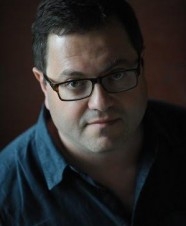
Arkady Ostrovsky
Arkady Ostrovsky is Russia and Eastern Europe editor for The Economist. Prior to this role, he was the Moscow Bureau Chief for the Economist reporting on the annexation of Crimea and the war in Ukraine among many other subjects. He joined the paper in March 2007 after 10 years with the Financial Times where he covered Russian politics and business, including the Yukos Affair. His articles were among the first to warn of the resurgence of the security state under Putin. At The Economist, Arkady also writes about Russia-US relations, European security, Russia and China, Ukraine, Georgia and other former Soviet republics.
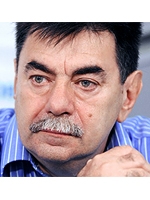
Emil Pain
Dr. Pain is General Director of the Centre for Ethno-Political Studies and Professor in political science at the National Research University, Higher School of Economics. Dr. Pain has published 13 books and over 400 articles, focusing on nationality politics, ethnic conflicts and terrorism problems in Russia, the Caucasus, and Central Asia. He was an Adviser on Nationality Issue to the Russian President B. Yeltsin in 19961999, and a Galina Starovoitova Fellow on Conflict Resolution at the Kennan Institute in Washington from 2000-2001. On September 16, 2004, the European Foundation “TOLERANCE” award Emil Pain a gold medal “For transcendent merits in sociological and historical studies promoting resolution of ethnic conflicts in Russian regions”.
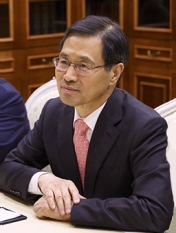
Ro-Byug Park
Ro-Byug Park most recently served as the Ambassador of the Republic of Korea to the Russian Federation. His current position is the Secretary General of the International Conference of Asian Political Parties (ICAPP). Ambassador Park holds a Postgraduate Diploma in International Relations from the London School of Economics, as well as a Ph.D. in History from the Diplomatic Academy of the Ministry of Foreign Affairs of the Russian Federation. His dissertation was on, “History of Korean Russian Relations, Trade and Economic Aspects (1884-1903).” Later, Ambassador Park was a Visiting Fellow at Georgetown University (2007-2008). Ambassador Park is author of several books, including “Twenty Years of Economic Relations between Korea and Russia (1884-1903)” and “Paradigms of International Relations.” Both books are in Korean. Ambassador Park has received several awards for his diplomatic service, most recently the Youngsan Diplomat of the Year Award from the Seoul Forum in March 2016. Ambassador Park has worked for the diplomatic corps in Switzerland, Russia, Uzbekistan, Myanmar and the United States.
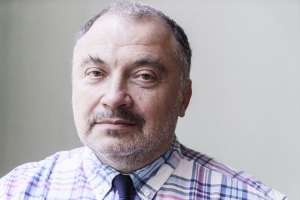
Nikolay Petrov
Nikolay Petrov is a professor and head of the Laboratory of Methodology of Regional Development Evaluation at the Higher School of Economics, Moscow. For many years, he was scholar-in-residence at the Carnegie Moscow Center, where he directed the Society and Regions project. He also heads the Center for Political-Geographic Research. Petrov is a columnist for the information agency RBC (RosBusinessConsulting), a member of the Program on New Approaches to Research and Security in Eurasia (PONARS Eurasia), a member of the Scientific Advisory Councilofthe Finnish Institute of International Affairs, and a member of the scientific boards of: The Journal of Power Institutions in Post-Soviet Societies; Russian Politics; Russian Politics & Law; and Region: Regional Studies of Russia, Eastern Europe, and Central Asia. During 1990–1995, he served as an advisor to the Russian parliament, government, and presidential administration.
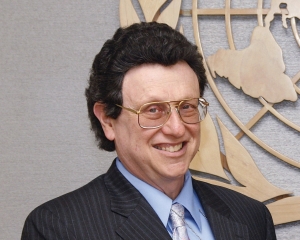
William Potter
Dr. William Potter is Sam Nunn and Richard Lugar Professor of Nonproliferation Studies and Founding Director of the Center for Nonproliferation Studies at the Middlebury Institute of International Studies at Monterey. He is the author or editor of over 20 books, including two volumes on Forecasting Nuclear Proliferation in the 21st Century (Stanford University Press, 2010), The Global Politics of Combating Nuclear Terrorism (Routledge, 2010), Nuclear Politics and the Non-Aligned Movement (Routledge, 2012), and Preventing Black Market Trade in Nuclear Technology (Cambridge University Press, forthcoming 2017). Dr. Potter has served on numerous committees of the US National Academy of Sciences and for five years was a member of the UN Secretary-General’s Advisory Board on Disarmament Matters. He has been an advisor to the delegation of Kyrgyzstan at every NPT Review Conference and Preparatory Committee meeting since 1995. He is renowned for his work on disarmament and nonproliferation education, and is regarded as one of the world’s leading authorities on the use of simulations for pedagogical purposes.
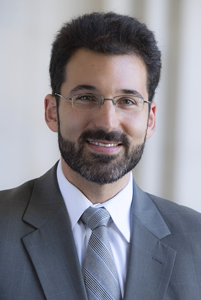
Matthew Rojansky
Matthew Rojansky is the Director of the Kennan Institute, as well as an adjunct professor at both Johns Hopkins SAIS and American University. Mr. Rojansky is an expert on U.S. relations with the states of the former Soviet Union, especially Russia, Ukraine, Belarus and Moldova. He has advised governments, intergovernmental organizations, and major private actors on conflict resolution and efforts to enhance shared security throughout the Euro-Atlantic and Eurasian region. Prior to entering his role with the Kennan Institute, from 2010 to 2013, Mr. Rojansky was Deputy Director of the Russia and Eurasia Program at the Carnegie Endowment for International Peace. There, he founded Carnegie’s Ukraine Program, led a multi-year project to support U.S.-Russia health cooperation, and created a track-two task force to promote resolution of the Moldova-Transnistria conflict. From 2007 to 2010, Mr. Rojansky served as executive director of the Partnership for a Secure America (PSA), where he worked on issues relating to arms control and nonproliferation. Founded by former congressman Lee Hamilton (D-IN) and former senator Warren Rudman (R-NH) with a group of two dozen former senior leaders from both political parties, PSA seeks to rebuild bipartisan dialogue and productive debate on U.S. national security and foreign policy challenges. While at PSA, Mr. Rojansky orchestrated high-level bipartisan initiatives aimed at repairing the U.S.-Russian relationship, strengthening the U.S. commitment to nuclear arms control and nonproliferation, and leveraging global science engagement for diplomacy. Mr. Rojansky serves as U.S. Executive Secretary for the Dartmouth Conference, a track-two U.S.-Russian conflict resolution initiative begun in 1960. He has lectured at colleges and universities throughout the United States, Russia and Europe. He is frequently interviewed on TV and radio, and his writing has appeared in the International Herald Tribune, the Washington Post, and Foreign Policy.
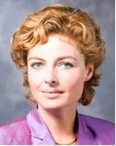
Asya Rudkovskaya
Dr. Asya Rudkovskaya is aSenior Digital Strategy Adviser at the World Bank. Dr. Rudkovskaya advises global business and government leaders on competitiveness and digital transformation strategies. In her role as Senior Digital Strategy Advisor for the World Bank, she is leading engagements with the governments of Russia and the Eurasian Economic Union on helping shape their Digital Transformation Strategies. Earlier, as Managing Director in Cisco’s Emerging Markets theater responsible for driving the company’s public sector business, she advised government leaders on the strategic use of digital technologies to achieve their national development objectives and sustainable national, regional and global competitive advantage. Dr. Rudkovskaya was also Chairman of the Cisco Trusted Advisor Club - a quarterly forum of visionaries and Global Fortune 500 senior executives aimed at exchanging thought leadership and best practice on the critical business issues of the day and the role of ICT in building strategies for future competitiveness. Prior to joining Cisco Dr. Rudkovskaya was Director of Michael Porter’s Harvard Business School Center for Middle East Competitive Strategy. She led operations in Turkey and the Near East, working with governments, private sector and NGOs on cluster-building, private-public sector partnerships, and developing strategies for national competitiveness.

Yury Saprykin
Yury Saprykin is the author of Observation Points (2015) and has leadcourses on urban and youth culture for Russia’s leading educational institutions and online resources. He took part in the relaunch of the analytical website Slon.ru and Russia’s oldest English-language publication, The Moscow Times. In the 2000s he was editor-in-chief of the journal, Afisha, a publication largely responsible for forming the tastes and values of the new educated urban class, the generation of “Russian Europeans.” He is a graduate of MGU’s Department of Philosophy.
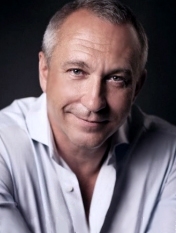
Alexey Sitnikov
Alexey P. Sitnikov, Ph.D. (psychology) is a founder and president of a major think tank in Russia, ICCG, a founder of Triangle Consulting Group. Dr. Sitnikov is head of the Political Advising and Electoral Technologies Department in the State University – Higher school of Economics (SU-HSE) and a research advisor of the Institute of Communication Management at SU-HSE, a member of the Highest Expert Council of the Russian Public Relations Association, a vice-president of the ICCO-Russia and a President of the National Academy of Social Technologies (Russia).
He is the author of 11 monographs published in Russia and Poland. ICCG (founded in 1989) provides expert services in public relations, political consulting and lobbying. It has executed more than 400 electoral campaigns, over 350 information and PR campaigns, research, socio-political and lobbying projects and over 200 workshops and training sessions, consulting programs in Russia and abroad.
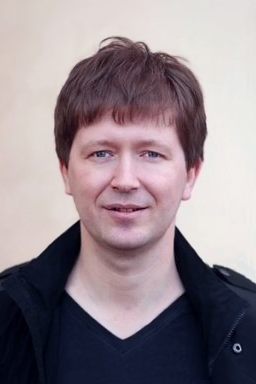
Andrei Soldatov
Andrei Soldatov is a Russian investigative journalist, co-founder and editor of Agentura.ru, a watchdog of the Russian secret services’ activities. Soldatov regularly makes comments on terrorism and intelligence issues for Vedomosti, Radio Free Europe and the BBC. He is a columnist for Ezhednevny Journal and The Moscow Times. Since the autumn 2010 Soldatov writes for Foreign Policy and Foreign Affairs.
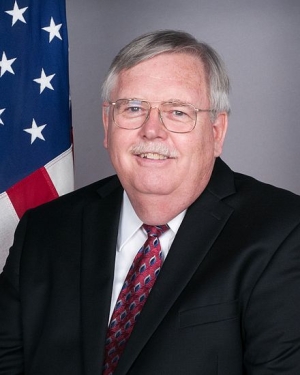
John Tefft
Ambassador John F. Tefft is a retired United States diplomat. He was a career Foreign Service Officer for more than 45 years, completing his service as the U.S. Ambassador to the Russian Federation from 2014 to 2017. Prior to that he served as the U.S. Ambassador to Lithuania from 2000 to 2003, Ambassador to Georgia from 2005 to 2009, and Ambassador to Ukraine from 2009 to 2013. He worked from 2004 to 2005 as the Deputy Assistant Secretary of State for European and Eurasian Affairs responsible for U.S. relations with Russia, Ukraine, Belarus, and Moldova.
Ambassador Tefft originally retired from the Foreign Service in September 2013 and served as Executive Director of the RAND Corporation’s Business Leaders Forum from October 2013 to August 2014 until his recall to duty and confirmation as U.S. Ambassador to the Russian Federation.
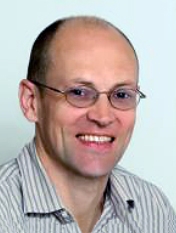
Andrei Tsygankov
Dr. Andrei P. Tsygankov is Professor at the departments of Political Science and International Relations at San Francisco State University. A Russian native, Tsygankov is a graduate of Moscow State University (Candidate of Sciences, 1991) and University of Southern California (Ph.D., 2000). He published several books in English and Russian including Anti-Russian Lobby and American Foreign Policy (2009), Russia and the West from Alexander to Putin (2012), and The Strong State in Russia (2014), as well as many journal articles.
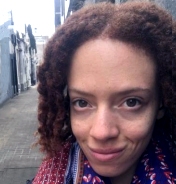
Taylor Valley
Taylor Valley is a currently a fellow at the Davis Center for Russian and Eurasian Studies. She is also a graduate of Harvard University’s program in Regional Studies: Russia, Eastern Europe, & Central Asia. In 2016 she received a BA in Russian Studies and Political Science.
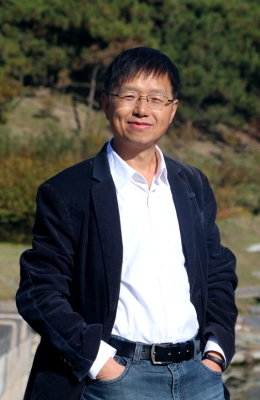
Hu Yong
Hu Yong is professor at Peking University’s School of Journalism and Communication, as well as a well-known new media critic and Chinese Internet pioneer. Before joining the faculty of Peking University, Hu Yong worked in the media for 20 years, including for China Daily, Lifeweek, China Internet Weekly and China Central Television.
Hu Yong is a founding director for the Communication Association of China (CAC) and China New Media Communication Association (CNMCA) and an Academic Committee member of Peking University HSBC Business School (PHBS). Currently, he directs the Institute for Information Society Studies (IISS) under China Information Economics Society (CIES).
Hu Yong is a member of the Steering Committee of Chinese Internet Research Conference (CIRC). He was also a member of the World Economic Forum Global Agenda Council on Social Media in 2013-2016. From 2013 to 2019, Hu Yong has been one of the primary researchers for Ranking Digital Rights project (rankingdigitalrights.org), housed at the New America Foundation in Washington DC.
Hu Yong’s publications include Internet: The King Who Rules (1997), The Rising Cacophony: Personal Expression and Public Discussion in the Internet Age (2008), and Haier Purpose: The Real Story of China’s First Global Super-Company.
Active in industry affairs, he co-founded the Digital Forum of China, a nonprofit organization that promotes public awareness of digitization and advocates a free and responsible Internet. He also co-founded Chinavalue.net, a leading business new media in China. In 2000, Hu Yong was nominated for China’s list of top Internet industry figures.
Hu Yong has written for a variety of national and international publications, including Southern Metropolitan News, Southern Weekend, The Beijing News, Lifeweek, New Weekly, The Economic Observer, The Time Weekly, Harvard Business Review, China Entrepreneurs, CEO & CIO, Business Watch, Sino-Foreign Management, 21st Century Business Review, PKU Business Review, CEIBS Business Review, China International Business, Fortune (the Chinese edition), Bloomberg Businessweek (the Chinese edition), cn.NYTimes.com, www.ftchinese.com, and Foreign Policy. He is also a columnist with Project Syndicate and ChinaFile.
Hu Yong’s academic honors include China Media Project Visiting Fellow, Journalism and Media Studies Centre, The University of Hong Kong; China Internet Project Visiting Fellow, Graduate School of Journalism, The University of California, Berkeley; Visiting Fellow, School of Journalism and Communication, The Chinese University of Hong Kong; Arthur Ross Fellow of Asia Society’s Center on U.S.-China Relations, New York; Visiting Faculty Fellow, Center for Ideas and Society, University of California, Riverside; Visiting Fellow, Faculty of Political Science and Economics, Waseda University; Guest Professor, Centre for East and South-East Asian Studies, Lund University; Guest Professor, Department of East Asian Studies, University of Vienna.
Hu Yong is an active blogger/microblogger, with a readership of 7 million, and his microblog (Weibo/Twitter) has more than 200,000 followers. He is a frequent analyst on TV and newspapers/magazines. He has been widely quoted in the New York Times, Wall Street Journal, Washington Post, LA Times, USA Today, The Economist, Financial Times, Guardian, South China Morning Post, Reuters, AP, AFP, DW, NPR, PBS and BBC.
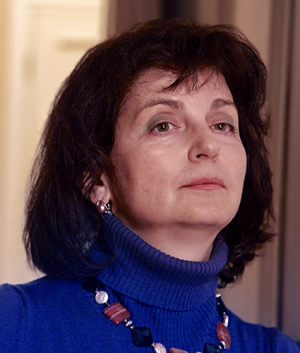
Tatiana Yudenkova
Tatiana Yudenkova holds a Ph.D. in Art History and heads the late 19th–early 20th century painting department at the State Tretyakov Gallery in Moscow. Additionally, she is a leading researcher in the division of Russian art of the 18th–early 20th century at the Research Institute of the Russian Academy of Arts. She has authored over 100 scholarly and general articles on the history of Russian art and the problems of collecting art in the second half of the 19th century. She has served as the curator for a series of exhibits by the Tretyakov Gallery in Moscow, as well as in Russia and abroad. She is the curator of the Ilya Repin exhibit (Tretyakov Gallery, Moscow 2019).
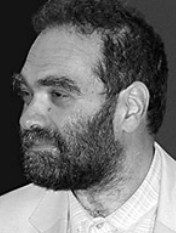
Andrei Zorin
Dr. Andrei Zorin is a Professor of Russian and a Fellow of New College at Oxford University as well as a professor in the Russian Presidential Academy of National Economy and Public Administration. He is a member of the editorial boards of the journals «New Literary Observer», «Slavic Review», and «Cahiers de Monde Russe». His areas of specialization are Russian Literature and Russian Cultural History, especially of the XVIII- XIX centuries. His research includes Russian literature and culture of the 18th – beginning of the 19th centuries in the European context, the cultural history of emotions, and the history of the cultured community in Russia and in the USSR. Dr. Zorin graduated from Moscow State University (1978) and completed his Dissertation (1983) and Habilitation (2000) also at Moscow State University.
